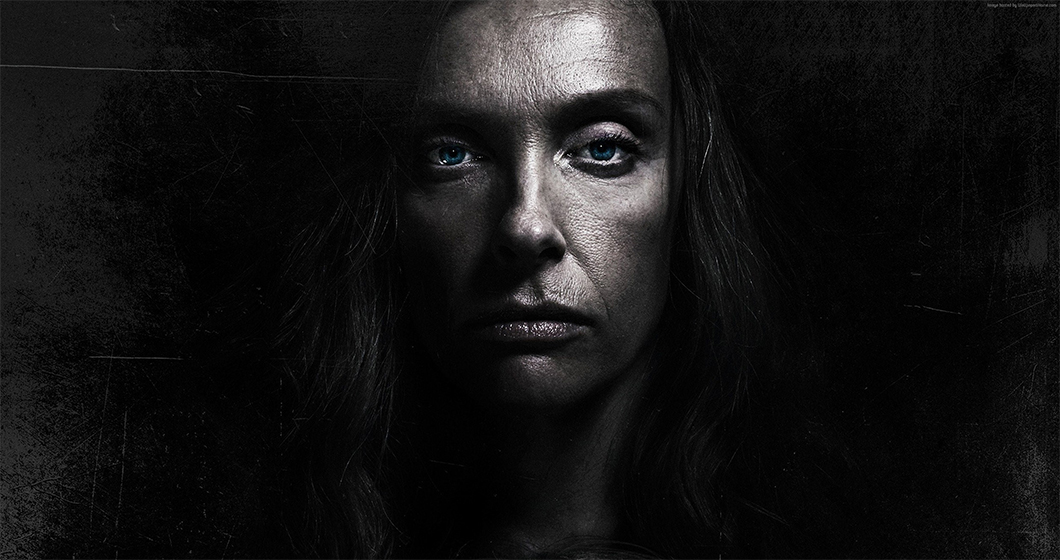Hereditary is a hard film to review. That’s not quite accurate – it’s easy to review (it’s fantastic, go see it) but it’s hard to write this review since a huge amount of what made the film as good as it is was going in as blind as possible.
There’s an ongoing arm’s race between horror directors and increasingly media literate horror fans, who are hard to scare, and so the director has to keep wrong footing them. It’s rare that a film does that on a narrative level too.
We start with a family attending the funeral of their grandmother. They go through the motions of the funeral but seem nonplussed by the death. We slowly learn that it was a long time coming and the relationship was fraught at best, especially with Annie (Toni Collette in outstanding form). It hits young Charlie (a revelatory debut for Milly Shapiro) their odd, silent 13-year-old daughter, hard though. The death begins to affect the family, with Annie is realising how much she wanted to tell her mother, and also how much of her life she kept away from everyone, and worrying whether she’s done the same with her kids. Then tragedy strikes, and the film sharply changes focus.
Hereditary does this a lot, and it’s why I recommend going in a blind as possible. The less you know the better. It’s a film that doesn’t want you even knowing what genre you’re watching. Reducing it to a horror film is inaccurate, because the early sections of the movie are amazing, and could be the beginning of a different and excellent film. Even late in the film, it’s wrong-footing you about what’s going on without ever breaking its own rules. It doesn’t contort itself to give a misleading impression, it just shows you something that could be interpreted a few ways, and lets you draw your own wrong conclusions.
Most horror films derive from real fears, much more mundane than the actual monster or killer. The Texas Chainsaw Massacre is really about the rural/urban divide, for instance. Dawn of the Dead is about society’s collapse tearing open the rifts that are already in our society. The Thing is about isolation more than aliens. Similarly, Hereditary is about grief, guilt and the always tricky relationship between parents and children. The mundane and the less mundane sources of fear are so in tune in this film that they flow together perfectly. To find a comparison, you’d have to look at the real classics of the horror genre, like the aforementioned The Thing by John Carpenter.
The technical side of the film, unsurprisingly, is outstanding. There’s obviously a lot of good jump scares but the film, amazingly, doesn’t give any of them a musical sting. It lets them shock on their own. By the same token, none of them were part of the patented sequence of shots that build to a jump scare. It also, even more unnervingly, just leaves creepy stuff in the background a lot. No sting, no emphasis. I could hear spaced out gasps as different people spotted these things. It also avoided the common technique of POV shots looking around corners. The camera tended to stay tight on the characters’ faces, more interested in reactions and the effect on the character than what they’re seeing.
It was like a horror movie but without any of the standard tools of the horror director. It goes along with the idea that this is a horror movie that genuinely invests in the set up. The family drama of the early film is compelling in its own right, and the latter half retains its camera work, letting us stick with these excellent actors and seeing what they can do, and seeing into the minds of the characters. It’s tempting to say that it doesn’t even realise it’s a horror movie, the same way the characters don’t, and so never uses the tools of one. It’s just following this family as strange things start to happen.
The last thing to mention is the sound. It’s a key tool for any horror director has been, and director Ari Aster (for whom, unbelievably, this is a debut film) knows this one well. It’s a very quiet film. As I said, there’s a lack of musical stings, but the whole movie operates quietly. And so, small sounds are deafening when they suddenly arrive. Like everything else in the film, it’s made up of what it doesn’t show and what it doesn’t do as much as what it does.
There’s a lot more to go on about, but the film is so inventive and so surprising that it would be hard not to spoil. Suffice to say, it’s excellent. If you’re a horror fan, you owe it to yourself. If you’re not, still give this some consideration, since it’s a genuinely outstanding example of the genre. It’s often not an easy watch, but it is a great movie.
9/10
Reviewed at Palace Electric






